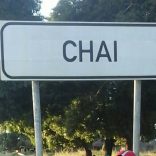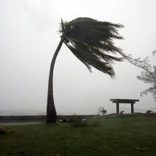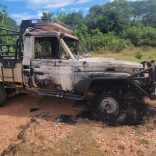Mozambique: Terrorists attack military base in Macomia - AIM report
Mozambique: Rebels likely to attempt to capture Pemba, carry out attacks in Mtwara, Tanzania, “unless the security situation changes significantly” – IHS | Lusa

Map: BBC
Armed groups active in the Mozambican province of Cabo Delgado “are likely to attempt to capture Pemba” in the next six months, “unless the security situation” in the region “changes significantly”, according to a report from IHS Markit, a security consultancy.
In the report on the 24 March attack on Palma, a town in Cabo Delgado near a natural gas complex that represents Africa’s largest foreign investment at present, IHS Markit estimates that it was the biggest attack to date carried out by insurgents from the Islamic State Central Africa Province (ISCAP), a local affiliate of Islamic State that locally is known as ‘Al-Shabab’.
According to the report “Terrorism in Mozambique’s Cabo Delgado province: Examining the data and what to expect in the coming years”, which was written by Senior Country Risk Analyst Eva Renon, [the Palma attack]” is very likely to have required more planning and a greater number of fighters than in previous attacks, demonstrating increased capability”..
The government’s response to the Islamist insurgency, she adds, “has thus far been weak, due largely to lack of coordination and capabilities of the police and the FADM, assisted by several Private Military Companies (e.g. from Russia and South Africa)”. The report adds that “the government has also been reluctant thus far to accept offers of any direct foreign military intervention, including from the African Union and Southern African Development Community”.
On 24 March, several groups of armed men seized the town of Palma, killing dozens of civilians and putting thousands of people to flight.
The last boatload of displaced people from the town arrived in Pemba on Thursday, carrying 1,200 of those who had taken refuge near the gas complex in Afungi.
The violence in the northernmost districts of Cabo Delgado began three years ago and has caused a humanitarian crisis, with more than 700,000 people displaced and more than 2,000 deaths.
According to the IHS Markit report, “the scale of the attack on Palma has the potential to encourage the Mozambican government to accept greater coordination between its forces and the US and Portuguese forces already present in the country”.
Unless the security situation changes “significantly”, Renon writes, “in the next six months insurgents are likely to attempt to capture Pemba which, in addition to hosting Total staff and logistics, has an airport and container port”.
” They will likely target beachfront hotels, government facilities, and the personnel and assets of Non-Governmental Organisations, the Catholic Church, and the United Nations.,” she adds.
If they manage to capture Pemba, the report adds, the insurgents ” are likely to turn their attention west to Montepuez and Balama. These areas are rich in ruby and graphite deposits respectively, with the insurgents likely to seek to extort then ultimately control mining operations, with associated risks of kidnap, injury, and death to mining staff and subcontractors.”
Attacks are also likely in Mtwara in Tanzania, the report continues, such as the market to inflict mass casualties, or against government assets and staff. However, they “would probably not be able to capture and then hold Mtwara because Tanzanian security forces are more capable than Mozambican forces and have experience in fighting Islamic State-linked insurgents.”.
Last year, the insurgents in Mozambique “captured the Cabo Delgado town and fishing harbour of Mocímboa da Praia and connected roads, thereby securing a steady revenue stream from the taxation of illicit trade in minerals and drugs prevalent there,”, the report recalls, adding that Mocímboa da Praia “has been a key transit point for narcotics for over forty years, mostly from Afghanistan and Pakistan, that make their way down to Johannesburg in South Africa, and then on to Cape Town before being shipped to western Europe, the US, and other destinations.”
“Access to these resources has enhanced their recruitment capability, allowing them to offer relatively high salaries to disenfranchised locals. Increased revenues have also allowed the insurgents to attract defectors from the Mozambican Defence Armed Forces (Forças Armadas de Defesa de Moçambique: FADM), resulting in increased intelligence leaks from the FADM as well as greater access to arms and ammunition, while also contributing to lower morale among FADM troops.,” the report stresses. The increase in incidents since the beginning of 2019 ” is due mainly to the abovementioned collaboration with criminal networks in Cabo Delgado and associated enhanced revenue streams”.
Currently, the report adds, “all roads north of Pemba and Montepuez and east of Mueda are under the control of the insurgents and road ambushes are systematic, making the sea route from Palma to Pemba the safest”.
Analysis of data from the conflict shows that the insurgents’ ” tactics appear to have shifted away from razing villages to controlling territory, increased use of beheadings, and relatively more sophisticated assaults on larger and more strategically important towns like Mocímboa da Praia and Palma, ” the report concludes.













Leave a Reply
Be the First to Comment!
You must be logged in to post a comment.
You must be logged in to post a comment.